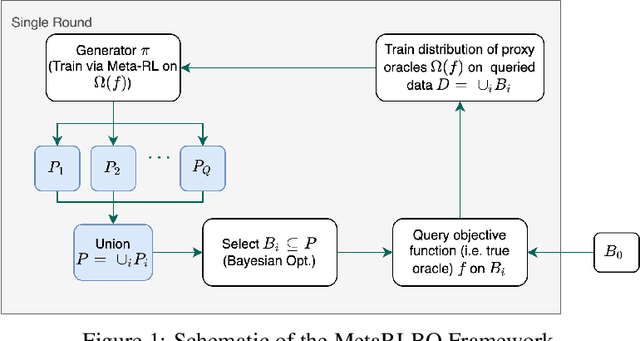Padideh Nouri
Discrete Probabilistic Inference as Control in Multi-path Environments
Feb 15, 2024



Abstract:We consider the problem of sampling from a discrete and structured distribution as a sequential decision problem, where the objective is to find a stochastic policy such that objects are sampled at the end of this sequential process proportionally to some predefined reward. While we could use maximum entropy Reinforcement Learning (MaxEnt RL) to solve this problem for some distributions, it has been shown that in general, the distribution over states induced by the optimal policy may be biased in cases where there are multiple ways to generate the same object. To address this issue, Generative Flow Networks (GFlowNets) learn a stochastic policy that samples objects proportionally to their reward by approximately enforcing a conservation of flows across the whole Markov Decision Process (MDP). In this paper, we extend recent methods correcting the reward in order to guarantee that the marginal distribution induced by the optimal MaxEnt RL policy is proportional to the original reward, regardless of the structure of the underlying MDP. We also prove that some flow-matching objectives found in the GFlowNet literature are in fact equivalent to well-established MaxEnt RL algorithms with a corrected reward. Finally, we study empirically the performance of multiple MaxEnt RL and GFlowNet algorithms on multiple problems involving sampling from discrete distributions.
Designing Biological Sequences via Meta-Reinforcement Learning and Bayesian Optimization
Sep 13, 2022



Abstract:The ability to accelerate the design of biological sequences can have a substantial impact on the progress of the medical field. The problem can be framed as a global optimization problem where the objective is an expensive black-box function such that we can query large batches restricted with a limitation of a low number of rounds. Bayesian Optimization is a principled method for tackling this problem. However, the astronomically large state space of biological sequences renders brute-force iterating over all possible sequences infeasible. In this paper, we propose MetaRLBO where we train an autoregressive generative model via Meta-Reinforcement Learning to propose promising sequences for selection via Bayesian Optimization. We pose this problem as that of finding an optimal policy over a distribution of MDPs induced by sampling subsets of the data acquired in the previous rounds. Our in-silico experiments show that meta-learning over such ensembles provides robustness against reward misspecification and achieves competitive results compared to existing strong baselines.
 Add to Chrome
Add to Chrome Add to Firefox
Add to Firefox Add to Edge
Add to Edge